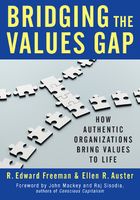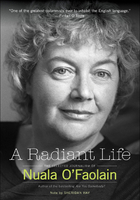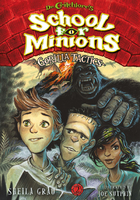1. How the baby boomers got their freedom: 1945–51
No generation has ever been as free as the baby boomers. They were freer than any of their ancestors, not just from oppression, but from poverty and ignorance, fear and illness. They were free because in 1942 Lord Beveridge called for a serious assault on 'the five giants', and in 1945 Clement Attlee's government launched that assault.
The year of the Beveridge Report also saw the first rise in the birthrate since 1880. Three years earlier, when the Second World War began in 1939, it had gone down to sixteen births per thousand of the population. A small increase in 1942 presaged the real baby boom, which began in 1945 and peaked in 1947 with a birthrate of 20.7 per 1,000.[1] It was an indication of optimism. In 1942 people were daring to hope, and in 1945 were starting to believe, that we were going to create a world fit for our children to live in: a world free, not just of the Nazis, but of the poverty that disfigured thirties Britain.
We have all seen those newsreel shots of wildly optimistic celebrations on Victory in Europe day – VE Day, 8 May 1945: people dancing in the London streets, climbing lamp-posts, singing. They were the parents of the baby boomers. And we know something that Prime Minister Winston Churchill and King George VI, watching benevolently from a balcony high above, did not know: that our parents were not just celebrating the end of Nazism, and of fear of invasion; they were also celebrating what they were about to do with their votes. Churchill's status as a national hero would not stop them voting him out of office. In the general election that was to follow, they were going to issue the sharpest call for a new and fairer society that Britain had ever heard.
Even Labour leader Clement Attlee was not expecting outright victory, and Winston Churchill never understood what had happened. When Clementine Churchill tried to console him by suggesting his defeat might be a blessing in disguise, he replied that it was 'a remarkably effective disguise'. Three years later, he wrote bitterly of how, with 'all our enemies having surrendered unconditionally or being about to do so, I was immediately dismissed by the British electorate from all further conduct of their affairs.'[2] But they were not dismissing Churchill so much as the Tories who had given them starvation and injustice in the thirties; and they were demanding a better world for their children by giving Attlee a landslide parliamentary majority of 146 seats. Attlee was to deliver their legacy to the baby boomers.
For the first (and last) time, two Communists were elected to Parliament, and Communist leader Harry Pollitt came within 972 votes of winning a third seat in Rhondda East. If Britain had had a system of proportional representation in 1945, the Communist Party's 100,000 votes would have given it enough seats to be a real power-broker, quite apart from the fact that several of Labour's new MPs were close to the Communist Party.
The Communist Party's brief popularity in 1945 was not just the result of Britain fighting the Second World War alongside the Red Army. The Communists had disavowed violent revolution in a new manifesto, The British Road to Socialism, and its popularity was a powerful sign that people had radical hopes of their new government. Great expectations were riding on Attlee's narrow shoulders.
Such expectations are often disappointed. People had radical expectations of Ramsay MacDonald in 1929, and of Tony Blair in 1997, and learned quickly not to hold their breath. But in 1945 the Labour Party was led by Britain's quietest and steeliest Prime Minister, and he had around him a small group of remarkable politicians, determined to seize the once-in-a-generation chance to change the world.
On 26 July 1945 Violet Attlee drove her husband to Buckingham Palace in the small family Hillman Minx and waited outside, just as Churchill's chauffeur had waited outside in the Rolls half an hour before when he resigned his office. Attlee and King George VI were both shy, awkward and understated men. 'I've won the election,' said Attlee, and the King replied, 'I know, I heard it on the six o'clock news.' It did not sound like the tumbrils, but it was.
Attlee came to power at the worst possible time to start spending great sums of money on improving the lives of the people. Britain had a war-devastated economy. Bombing had made thousands of people homeless. Daily life reflected the nation's poverty, even for those who were relatively well off. 'I travelled last Sunday to Newcastle upon Tyne,' wrote a prosperous journalist, J. L. Hodson, in 1945.
The journey which in peacetime took four hours now took eight and a quarter. No food on the train. No cup of tea to be got at the stops because the queues… were impossibly long. At Newcastle… no taxi to be got. My hotel towel is about the size of a pocket handkerchief, the soap tablet is worn to the thinness of paper, my bed sheets are torn.[3]
Things we take for granted were very hard to obtain. 'Her mother used to cut up newspapers into squares to hang on a piece of string in the outside privy,' reports the writer Julie Summers of a woman who was young in 1945. 'Her aunt, however, who was a little grander, used to use pinking shears to give her squares a more pleasing outline.'[4]
And in August 1945, just one week after Japan surrendered, the Americans dealt a final, crippling economic blow. They ended Lend-lease, the arrangement under which the USA supplied materials to Britain for which Britain was unable to pay. No one had imagined that it would be withdrawn so abruptly. Without Lend-lease Britain could not feed its people or pay its debts. It would, eventually, starve.
Lord Maynard Keynes, Britain's leading economist, was sent to Washington to negotiate a loan, and returned, not with the £5 billion loan he had hoped for, but £3.75 billion, on very harsh terms indeed. Britain had to agree to make sterling convertible to dollars on demand, which was likely to lead to a run on the pound and a financial crisis – as it did, three years later.
A lesser government would have taken the withdrawal of Lend-lease as an excuse to postpone or water down the great reforms that Labour had been elected to carry out, but Attlee knew that he had to seize the mood and slay the five giants, and he set himself a deadline of 5 July 1948.
He gave the task of slaying Want to Social Security Minister Jim Griffiths. Before 1945 there was an element of punishment about such relief as was available. If a father was out of work, his children might be saved from absolute starvation, but not from the many diseases, like rickets, resulting from undernourishment; and not from misery and humiliation. Griffiths's task was to ensure that benefits were universal, and that when people fell on hard times, they should not be driven to despair. His 1946 National Insurance Act for the first time insured every person in the land against sickness, unemployment and retirement, as well as providing widows' benefits, maternity benefits and death grants, with allowances for dependants. It embraced every person in the country who was over school age, but under pensionable age. A further piece of legislation, the National Assistance Act, was designed to catch those who, for whatever reason, fell through the system. The intention was that no one would ever again fall below a basic subsistence level, and it removed the fear of starvation from most of the baby boomer generation for the whole of their lives.
Ellen Wilkinson, Minister of Education, was given the task of slaying Ignorance. Wilkinson set to work to implement the 1944 Education Act, ignoring all the many voices that counselled delay in the light of the economic circumstances. The Act specified that education should be free and universal, and she raised the school leaving age to fifteen. It all required a huge school building programme and the training of 35,000 new teachers in a hurry. She also needed a rapid expansion of university places, which increased from 50,246 in 1938/9 to 76,764 in 1947/8.
She introduced free school milk. By October 1946 more than 90 per cent of all school children were getting their third of a pint of free milk, in those funny little bottles that became a part of the childhood memories of all baby boomers. 'Free milk will be provided in Hoxton and Shoreditch, in Eton and Harrow. What more social equality can you have than that?' she told the 1946 Labour Party conference, but of course free school milk undeniably made more difference in Hoxton and Shoreditch than it did in Eton and Harrow. In places where children did not get an adequate diet, or left home without breakfast, it contributed greatly to the defeat of childhood illnesses. Generations of poor children grew up stronger and healthier because of this one small and not very expensive measure. Before the war, private-school children were noticeably taller, healthier and stronger than the poorest state-school children, because they were properly fed. In the fifties this was so no longer, and the reason was free school meals and school milk.
Wilkinson's principle that everyone, rich and poor, should have it was what underlay the welfare state as the Attlee government envisaged it. The millionaire is entitled to his state old age pension, because he is a citizen. The only alternative to universal benefits was the means test, which caused great hardship and bitterness. This principle of universality was the first to be abandoned by the baby boomer generation in government, half a century later. And free school milk was the first of the Attlee government's measures to be clawed back by Margaret Thatcher, who abolished it when she was Education Secretary in Edward Heath's 1970–74 government.
Ellen Wilkinson avoided the extra battle necessary to implement the 1942 Labour Party conference resolution in favour of what we now call comprehensive schools. Instead the government created a three-tier system of grammar schools, technical schools and secondary modern schools, and the Eleven plus examination would decide which of the three each child should attend.
Wilkinson didn't like the system she created, but calculated that a comprehensive system was a political battle too far. She was appalled by the idea of dividing children at eleven into successes and failures, saying privately, 'The stigma of lower IQs should not attach itself to any particular institution.' She worried that history might not be taught outside grammar schools, caricaturing it as: 'Don't worry how we got India, let's go and do some nice work at the forge.'[5] But she saw the three-tier system as a necessary compromise if she was to get the rest of her package through.
Disease was to be confronted by Nye Bevan. Bevan nationalised hospitals, saying that if the nation did not own them, the Minister could not provide a National Health Service – he could only exhort others to do so – and he could not guarantee the right of a sick person to a hospital bed. Already between 80 and 90 per cent of voluntary sector hospitals' money came from public funds, so why should they not be accountable? In the teeth of furious opposition from the Conservatives and the British Medical Association, and despite its massive expense, his Bill received the Royal Assent on 6 November 1946, to come into operation on 5 July 1948.
The NHS was instantly so popular that both the BMA and the Conservative Party were soon claiming that they had been in favour of it all along. The infant baby boomers were taken to the doctor for cuts and bruises, coughs and colds, and were treated. Very quickly, people old enough to remember the thirties knew they would never permit a government to take them back to a time before the National Health Service.
Baby boomers still expect treatment when we feel we need it. We were the first generation to expect this; and if it is left to us, we might be the last. Most of the baby boomers were born in the NHS, so you would expect it to be safe in their hands. Yet since 1979 it has been tinkered with in ways that would horrify Bevan; and recently an influential thinktank, the Social Market Foundation, proposed a £20 fee for each visit to the doctor.
Bevan was also responsible for the assault on Squalor, providing housing in a country where thousands of homes had been destroyed in all major cities; where thousands of people still lived in slums; where a market-led housing boom in the thirties had produced hundreds of thousands of middle-class homes for sale, but nowhere for slum-dwellers to move to; where there was a chronic shortage of building materials; and where the baby boom was just starting. He made local authorities the engine of his housing policy. The postwar council estates are still the best social housing Britain ever produced, because Bevan insisted on higher standards than his successors thought affordable. The mean little houses and flats in tower blocks which now often pass for social housing were a long way in the future.
Squalor, like Ignorance, was not slain, but it was wounded. Many of the baby boomers grew up on Bevan's council estates. If they had been born a generation earlier, they would have been children in grim urban slums; and if a generation later, in terrifying tower blocks. They were indeed a blessed generation.
On 5 July 1948, five new acts became operational: Bevan's NHS Act and Town and Country Planning Act, Griffiths's National Insurance and National Assistance Acts, and the Children Act, providing for children cared for by the state. Clement Attlee broadcast to the nation on the radio:
Tomorrow there will come into operation the most comprehensive system of social security ever introduced into any country… When I first went to work in East London, apart from what was done by voluntary organisations and by private charities… the only provision for the citizen unable to work through sickness, unemployment or old age was that given by the Poor Law… The Poor Law was designed to be, and indeed it was, the last refuge of the destitute.
The new Acts were based, he said, on a new principle: that 'we must combine together to meet contingencies with which we cannot cope as individual citizens.' They were 'part of a general plan and they fit in with each other… They are comprehensive and available to every citizen. They give security to all members of the family.' The NHS 'gives a complete cover for health by pooling the nation's resources and paying the bill collectively.' The words read strangely today, because we do not remember what life was like when the only relief available was provided by voluntary organisations and private charities.
The fifth giant, Idleness, or unemployment as it is more commonly known, had been slain for the duration of the war, but would demobilisation bring it back? After the First World War the streets had been full of former soldiers who had given their health for their country, and whose country could not even offer them the chance to work and feed their families. It did not happen after the Second World War. The government got about ten million people out of wartime jobs without unemployment ever going above 3 per cent.
In October 1945 Chancellor Hugh Dalton's first budget reduced the very high wartime level of taxation, but the tax cuts were strongly in favour of the worst off. Dalton took two and a half million people in the lower income groups out of tax altogether, and substantially increased tax for the wealthiest – at its highest level, income tax reached 19s 6d (97?p) in the pound. He introduced a profits tax and raised death duties. A second budget, in April 1946, increased substantially the sum spent on education, began the payment of family allowances and put £10 million into Development Areas that suffered from high levels of unemployment. Under Attlee and Dalton, the state played Robin Hood, robbing the rich to give to the poor. It had never done so before. It has never done so since.
*
Part of the reason it has never done so since is the relationship with the USA after the withdrawal of Lend-lease and the American loan. American disapproval of Britain's welfare state mattered from the start. In the 1945 postwar settlement, the USA, the Soviet Union and Britain were referred to as 'the big three' but it was mere politeness: 'the big two and a quarter' would be more accurate.
The decision to withdraw Lend-lease and force Britain to pay on the nail for everything supplied by the USA was taken so quickly and unexpectedly that two ships about to leave New York had to turn round and go home. During the loan negotiations, senators grumbled that Washington might be subsidising socialism in Britain, while American newspapers jeered at the threadbare Brits and their begging bowl, presenting them as sponging socialists crawling to Uncle Sam so that they could feather-bed their people. Foreign Secretary Ernest Bevin had to stifle his fury at headlines in the American press calling Britain a nation of 'cry-babies', while Attlee told Parliament with characteristic understatement but uncharacteristic bitterness: 'If the role assigned to us [during the war] had been to expand our exports, we should, of course, be in an immeasurably stronger position than we are today.' The USA, he reminded MPs, had expanded its exports during the war.
The Americans made clear to the British negotiators that a nation deeply in debt to the USA should not oppose Washington in important foreign policy matters. The US Secretary of State, James Byrnes, presented Ernest Bevin with a list of places around the world where the US would like to have bases, implying that the loan depended on Britain's agreement. Thus Britain's financial problems merged with its foreign policy, and the two have remained in unholy alliance ever since.
Thus was set the tone of the special relationship, which was always akin to the relationship between a football and a boot; or, perhaps more accurately, to what a writer of the time, E. V. Rieu, described as the relationship between the lynx and the lion:
So when the Lion steals his food
Or kicks him from behind,
He smiles, of course – but oh, the rude
Remarks that cross his mind!
The British followed their government. Men who were young and fancy-free during the Second World War still smarted from the way that richer, more sophisticated and better-fed GIs tended to get their pick of the girls, and liked to think of America as a dangerously powerful child. 'The trouble with Americans is that they're overfed, oversexed and over here,' they said, and they quoted Oscar Wilde's line that the USA had gone 'from barbarism to decadence without going through the intermediate stage of civilisation.'
This indicates envy and just a little fear, but also a certain defiance and a sense of innate superiority. The generation that fought the war still thought it had something to teach the Americans. And even after the American loan, Attlee and his ministers were trying to maintain an independent line, though with considerable difficulty.
That was what lay at the heart of the government's decision to pursue an independent atomic weapon. Ernest Bevin put the argument with his usual bluntness and disregard for syntax at a cabinet committee in 1946:
We've got to have this. I don't mind for myself, but I don't want any other Foreign Secretary of this country to be talked at, or to, by the Secretary of State in the United States, as I have just had in my discussions with Mr Byrnes. We've got to have this thing over here, whatever it costs. We've got to have a bloody union jack flying on top of it.[6]
The British sense of innate superiority was enhanced in 1950, when Attlee may have prevented President Harry Truman from making a dangerous ass of himself. Truman had made a statement that sounded as though he was giving General MacArthur, the outspoken American general who led the international force fighting against the Communist North Korea, permission to use the atom bomb there. Attlee instantly flew to Washington, where he and Truman engaged in a lot of superficial banter about their shared experience of fighting in the trenches during the First World War, with Major Attlee and Captain Truman singing First World War songs together after dinner at the British embassy, including a chorus of 'It's a Long Way to Tipperary'. That may have been the wily Attlee's way of getting what he wanted from Truman. The bomb was not used; the Americans neither withdrew from Korea nor broadened the conflict into a global war with China; and eventually Truman fired MacArthur. Those were the three things Attlee wanted. It was probably the last time a British Prime Minister had a decisive influence in Washington.
Things are very different now. Baby boomers in government since 1997 seem to have decided that when Washington says jump, they can only ask how high; while baby boomers in general are divided between those who admire America and those who despise it. The faint, very British feeling of genteel, threadbare superiority has quite disappeared. And this is odd, because the last instalment of the loan has been paid off, and in 2003 Britain was living in good economic times, but that year a baby boomer Prime Minister, Tony Blair, went to war in Iraq at the behest of Washington and against the wishes of his own people.
*
In the eighties, as the baby boomers were becoming fat and powerful and middle-aged, it became fashionable to see the Attlee years in the same light as the press at the time saw them. The new analysis was that Britain's own economic policy failures led to Keynes being sent to Washington to 'cadge' American 'handouts'. The phrase comes from the New Right historian Correlli Barnett, who cannot keep the sneer out of his prose when he writes of the NHS. 'It resembled a military plan for, say, the Normandy invasion which simply left out such calculations as the number of divisions needed to overcome the enemy defences, the number of vessels needed,' he writes, and he asks if Aneurin Bevan, 'being a true romantic, simply shut his eyes to the Cruel Real World in pursuit of his vision of the Brave New World?'
Bevan's colleagues, says Barnett, shared his 'innocent faith in socialism' and even the Conservatives had become 'pallidly pink New Jerusalemers themselves'. Bevan was 'convinced like a Nietzschean superman that his personal powers placed him among a natural elite' and the NHS was 'a plan of military organisation produced by a general staff for a great offensive, commencing with the role of the supreme commander: "General responsibility for the service will rest with the Minister of Health."'[7]
This sort of rubbish was talked by the baby boomers in the eighties. Bevan and Attlee had their answer when people talked of the cost of the welfare state, and Attlee gave it during the parliamentary debate on the National Insurance Bill:
The question is asked: can we afford it? Supposing the answer is no, what does that really mean? It really means that the sum total of the goods produced and the services rendered by the people of this country is not sufficient to provide for all our people at all times, the very modest standard of life that is represented by the sums of money set out in the Second Schedule to this Bill. I cannot believe that our national productivity is so low, that our willingness to work is so feeble, or that we can submit to the world that the masses of our people must be condemned to penury.
It was a good argument: very nearly good enough to win Attlee a full second term in the teeth of the sort of media criticism that makes Correlli Barnett look reasonable. Attlee won the general election narrowly in 1950 but without a big enough majority to survive, called a second election in 1951 and polled more votes than the Conservatives. But the distribution of his votes was wrong for the British electoral system: he piled up votes in safe Labour seats, and Churchill came back to Downing Street with a majority of twenty-five.
These two general elections showed the biggest voter turnout Britain has seen since 1945 – an almost incredible 83.9 per cent in 1950 and 82.6 per cent in 1951. The turnout at the 1950 election, the first time the people had had the chance to cast a verdict on the welfare state, was 7.5 per cent higher than at any of the elections between the wars, and 10.5 per cent more than in 1945. (The 1945 figure was depressed because the register was not very accurate – the real increase is probably more like 5 per cent.)[8] After 1950 the turnout started decreasing, and it dropped like a stone after 1997 when the baby boomers took control. Turnout was 59.4 per cent in 2001.
People voted to give their verdict on the Attlee settlement because it was clear that the votes counted. The welfare state helped make people aware of politics, because it was a direct political solution to an obvious problem. And it had been a bumpy ride. There has never been a government like Attlee's. In places where the status quo reigned, it was a hated and reviled government. Most Americans loathed what Attlee had done. The well-known American journalist Emily Hahn wrote in the Evening Standard during the 1950 election a veiled warning that the USA might not wish to tolerate it: 'I wonder whether it has occurred to Mr Attlee that this is a rough and naughty world, and that quite a lot of it is outside England. He talked as though England could decide to be a socialist state all by itself…'[9]
Many of the wealthiest in the land hated it, even most of those who pretended to be rebels. Attlee-style social democracy, wrote Harold Nicolson, was 'the only possible antidote to communism' but he added, in a passage that sounds today as though it comes from the sixties: 'I do not like the Labour Party. I am a mixture of an aristocrat and a Bohemian. The bedintness [this was an expression from his wife's relatives the Sackvilles, denoting the attitudes and manners of the lower middle class] of the Labour people is as repugnant to me as is their gentility.'[10]
West End theatre audiences craved the restoration of what they saw as a proper balance between the classes, and were rewarded in 1948 with William Douglas Home's The Chiltern Hundreds, a vacuous comedy that showed an uppity socialist defeated in an election by a Conservative butler. (Message: real working-class people, the salt of the earth, respect nobility and know their place.) No one could ever have imagined that within a decade, London theatre would be the place for literary innovation.
The Attlee settlement left no one neutral, and that is part of the reason why people turned out en masse to vote for or against it. Poverty and its antidote, the welfare state, had helped politicise the nation.
So did the direct, passionate political literature of the time. 'There can be no greater contrast,' wrote left-wing author Andrew Davies in 1984,
between books such as Why You Should Be a Socialist, Guilty Men, Your MP, The Trial of Mussolini, Why Not Trust the Tories? and others published by Gollancz and Penguin Specials in the 1930s and the 1940s, and many of the 'left' books of today which use specialised and elitist language.[11]
Despite everything that anyone could throw at it during the lifetime of the Attlee government, the welfare state became so popular among people who remembered the hungry thirties that no politician dared confront it. The Conservatives ruled for thirteen years after 1951 and made no attempt to destroy the welfare state, though they tinkered with it in ways that enraged Aneurin Bevan. But now, as the baby boomers relinquish power, the welfare state is in greater danger than it has known before. If you want to see how bad things are, try reading with modern eyes what Beveridge told a meeting in Caxton Hall in 1943, and see how dreadfully dated it looks – and how utterly civilised it is:
My Report as a whole is intended to give effect to what I regard as a peculiarly British idea: the idea of a national minimum wage, which we learnt from the trade unions and have embodied in the Trade Board acts, is necessary but isn't sufficient. There is wanted also a minimum income for subsistence when wages fail for any reason: a minimum of provision for children; a minimum of health, of housing, or education.[12]
Beveridge spoke to a nation that remembered what poverty and starvation were like. The baby boomers did not remember, and did not trouble to find out. If we know no history, we may be fated to force our children to relive it.
Notes
[1] Arthur Marwick, British Society since 1945 (Penguin, 1982), p. 35.
[2] Winston Churchill, The Second World War, Vol 1, p. 526.
[3] Marwick, British Society since 1945, p. 22.
[4] Julie Summers, Stranger in the House (Simon & Schuster, 2008), pp. xi–xii.
[5] Peter Hennessy, Never Again (Vintage, 1993), pp. 159–60.
[6] Hennessy, Never Again, p. 268.
[7] Correlli Barnett, The Lost Victory (Macmillan, 1995), pp. 137–43.
[8] H. G. Nicholas, The British General Election of 1950 (Macmillan, 1951).
[9] Francis Beckett, Clem Attlee (Politico's, 2000), p. 280.
[10] Marwick, British Society since 1945, p. 44.
[11] Andrew Davies, Where Did the Forties Go? (Pluto Press, 1984).
[12] Quoted in Davies, Where Did the Forties Go?















